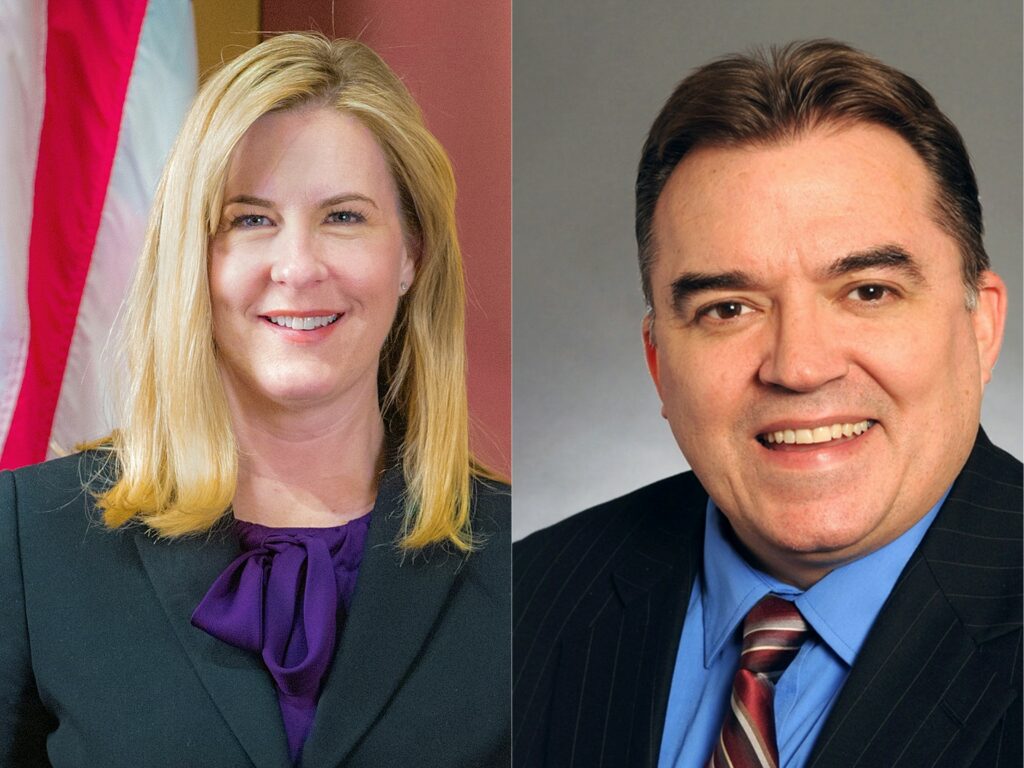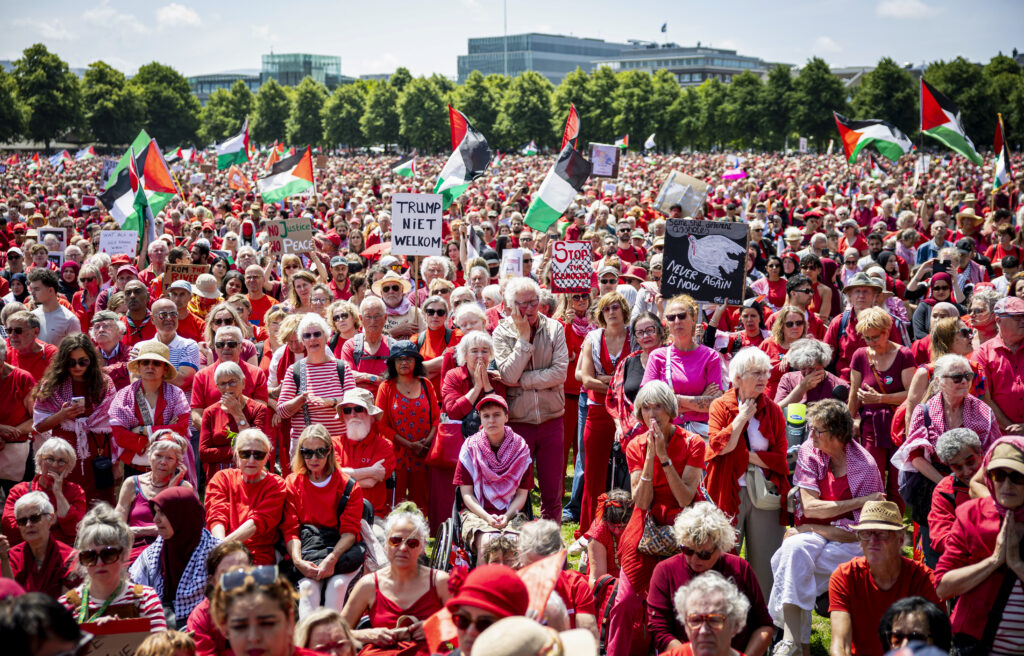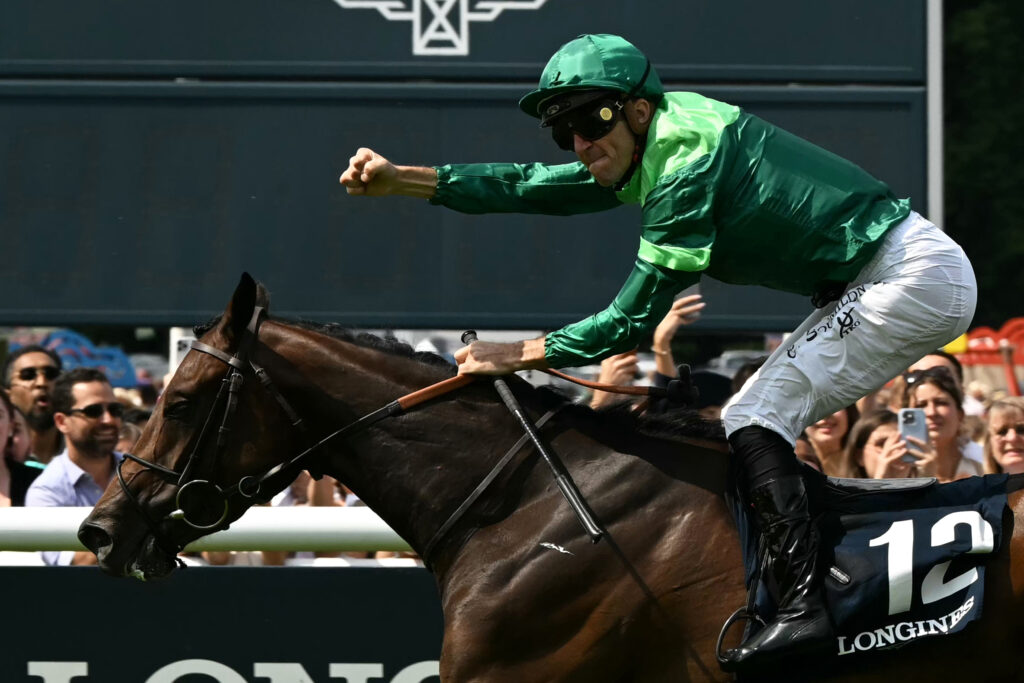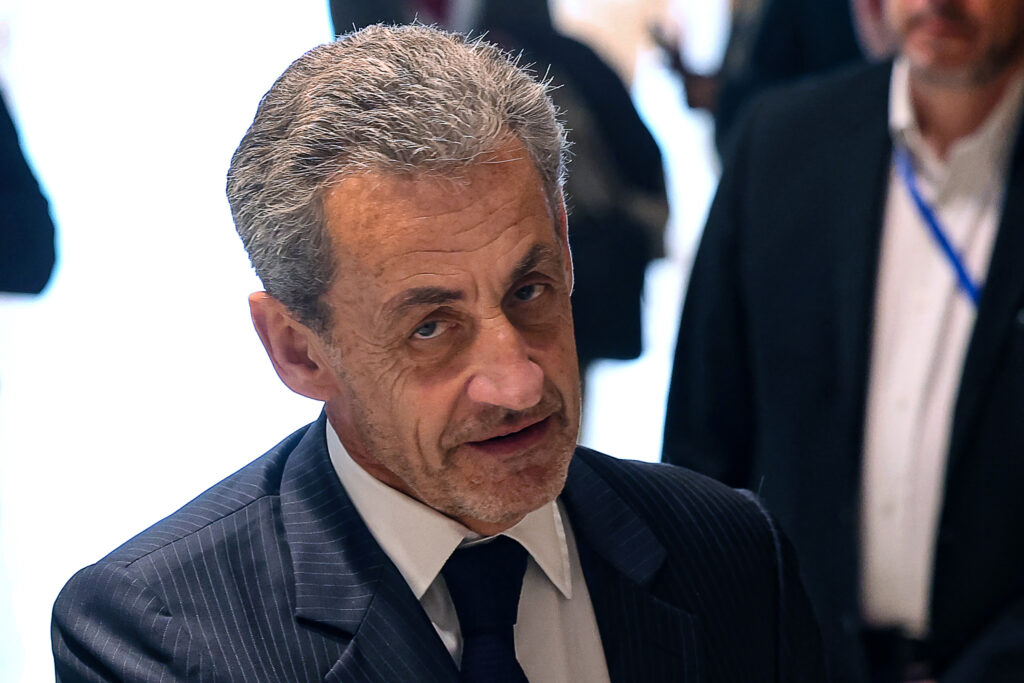Manhunt intensifies in US after lawmaker killed, another wounded
Police and FBI agents waged a huge manhunt Sunday for a gunman who killed a Democratic state lawmaker and her husband in Minnesota in what officials called a politically motivated attack.As America reeled from its latest spasm of political violence, lawmakers called for a return to civility in political discourse that has been overheated and angry for years.Authorities searched for a man identified as Vance Boelter, 57, who also allegedly shot and wounded another lawmaker and his wife early Saturday in the northern state bordering Canada.Officials said Boelter impersonated a police officer as he came to the homes of these couples near Minneapolis and shot them, and that officers found a manifesto and a list of other lawmakers and potential targets in his car. Boelter fled on foot after exchanging gunfire with officers after the second shooting.Officials have issued security alerts in South Dakota and other states as the hunt proceeds, US Senator Amy Klobuchar of Minnesota said Sunday as she mourned her slain friend, Democratic state representative Melissa Hortman.”I am concerned about all our political leaders, political organizations,” she said.”It was politically motivated, and there clearly was some throughline with abortion because of the groups that were on the list, and other things that I’ve heard were in this manifesto. So that was one of his motivations.”As speaker of the Minnesota House of Representatives, Hortman was committed to legislation that protected reproductive rights in the state, local media reported.America is bitterly divided politically as President Donald Trump embarks on his second term and routinely insults his opponents. Political violence is becoming more and more common.Trump himself survived an assassination attempt last year. An assailant with a hammer attacked the husband of then US House speaker Nancy Pelosi in 2022. And Pennsylvania Governor Josh Shapiro’s house was set on fire this year.”We need to bring the tone down, Klobuchar said on CNN.US Senator Rand Paul of Kentucky, himself attacked by a neighbor in 2017, told NBC “nothing brings us together more than, you know, mourning for somebody else who’s in political life, Republican or Democrats.”On Saturday the FBI released a photo that appears to show Boelter wearing a mask as he stands outside the home of one of the lawmakers.It is offering a $50,000 reward for information leading to his arrest and conviction.The shootings came on the day a dramatic split screen showed America divided: hundreds of thousands of protesters across the country took to the streets to rally against Trump as the president presided over a big military parade in Washington — a rare spectacle criticized as seeking to glorify him.Trump has condemned the killing of Hortman and her husband Mark and the wounding of state Senator John Hoffman and his wife Yvette.In a conversation Sunday with ABC News, Trump was asked if he planned to call Minnesota Governor Tim Walz, who was Kamala Harris’s running mate in the election Trump won last year.”Well, it’s a terrible thing. I think he’s a terrible governor. I think he’s a grossly incompetent person,” the president said. “But I may, I may call him, I may call other people too.”
Pays-Bas: une marée rouge à La Haye pour demander au gouvernement de lutter contre le “génocide” à Gaza
Vêtus de rouge, des dizaines de milliers de manifestants ont défilé dimanche dans les rues de La Haye pour demander au gouvernement néerlandais de prendre davantage de mesures contre ce qu’ils ont qualifié de “génocide” à Gaza.Quelque 150.000 personnes étaient présentes à la manifestation, selon les organisateurs. Des groupes de défense des droits, tels qu’Amnesty International et Oxfam, ont appelé à cette marche à travers la ville jusqu’à la Cour internationale de justice, créant ce qu’ils ont appelé une “ligne rouge”.En agitant de nombreux drapeaux palestiniens, tandis que certains scandaient “Stop au génocide”, les manifestants ont rempli un parc du centre-ville pouvant accueillir 100.000 personnes, le transformant en une mer rouge. Les manifestants brandissaient des banderoles sur lesquelles on pouvait lire: “Ne détournez pas le regard, faites quelque chose”, “Arrêtez la complicité néerlandaise” et “Silence quand les enfants dorment, pas quand ils meurent”. Les organisateurs ont exhorté le gouvernement néerlandais – qui s’est effondré le 3 juin après le retrait d’un parti d’extrême droite d’une coalition fragile – à faire davantage pour maîtriser Israël. “Plus de 150 000 personnes ici vêtues de rouge (…) veulent simplement des sanctions concrètes pour arrêter le génocide à Gaza”, a déclaré Michiel Servaes, directeur d’Oxfam Novib.”Nous exigeons une action de la part de notre gouvernement maintenant”, a-t-il ajouté. “Ça doit s’arrêter. Ça suffit. Je n’en peux plus.” “Je suis ici parce que je pense que c’est peut-être la seule chose qu’on peut faire maintenant en tant que citoyen néerlandais, mais c’est quelque chose qu’on doit faire”, s’est exclamée de son côté Dodo Van Der Sluis, une retraitée de 67 ans, interrogée par l’AFP.Le Premier ministre néerlandais démissionnaire Dick Schoof a réagi sur X: “A tous ceux qui sont à La Haye, je dis: nous vous voyons et nous vous entendons”. “En fin de compte, notre objectif est le même:mettre fin aux souffrances à Gaza au plus vite”, a-t-il ajouté.Des élections sont prévues le 29 octobre aux Pays-Bas.Une précédente manifestation à La Haye, le 18 mai, avait attiré plus de 100.000 personnes, d’après les organisateurs, selon lesquels il s’agissait de la plus grande manifestation dans le pays en 20 ans. La police n’a de son côté pas donné d’estimation pour cette manifestation. Rompant une trêve de deux mois, Israël a repris son offensive à la mi-mars sur la bande de Gaza, et a intensifié ses opérations militaires le 17 mai, dans le but affiché d’anéantir le mouvement islamiste palestinien Hamas, libérer les derniers otages restants et prendre le contrôle du territoire.L’attaque lancée le 7 octobre 2023 par le mouvement islamiste palestinien Hamas a entraîné la mort de 1.218 personnes côté israélien, en majorité des civils, selon un décompte de l’AFP basé sur des données officielles.En représailles, Israël a lancé une campagne militaire qui a tué plus de 54.600 Palestiniens, majoritairement des civils, selon des données du ministère de la Santé du gouvernement du Hamas pour Gaza, jugées fiables par l’ONU.En janvier 2024, la Cour internationale de justice (CIJ) a appelé Israël à prévenir tout acte de génocide. Le chef des opérations humanitaires de l’ONU a aussi a exhorté mi-mai les dirigeants mondiaux à “agir pour empêcher un génocide”.
Prix de Diane : victoire de la pouliche française Gezora , championne d’Europe sur 2.100 mètres
La pouliche française Gezora, montée par le Belge Christophe Soumillon, a été sacrée Championne d’Europe sur 2.100 mètres à Chantilly (Oise) grâce à sa facile victoire dans le Prix de Diane, le défi sportif le plus glamour de l’année hippique.Cette 176e édition a opposé, sur un bon terrain devant des milliers de spectateurs, dont de nombreuses femmes chapeautées, douze compétitrices de sang royal dotées de vitesse et de tenue, sur le parcours exigeant de l’hippodrome des Princes de Condé qui s’achève par une ligne droite en montée longue de 600 mètres.Gezora, âgée de trois ans, s’est élancée des stalles prudemment, patientant à l’arrière-garde. Elle a rejoint les premières Mandanaba, Merrily, Better Together et la favorite Shes Perfect à mi-parcours. Puis elle s’est mêlée à la lutte finale dans les 400 derniers mètres pour s’imposer à 50 mètres du but.”Quel pied! A l’entrée de la ligne droite j’étais un peu bloqué en dedans. J’avais dit à Francis (l’entraineur, ndlr) que je ne voulais pas me retrouver bloqué derrière les juments et quand je me suis décalé, elle a bien accéléré”, a raconté Christophe Soumillon, en lançant sa cravache dans la foule à son retour au rond de présentation, au micro d’Equidia. Il signe un troisième succès dans la course après ceux obtenus avec Latice en 2004 et Zarkava en 2008.”Je savais que Gezora avait une première chance. Dans le métier, il ne faut jamais rien lâcher. Il faut se lever tous les matins, travailler dur. J’espère que ça servira d’exemple aux jeunes”, a ajouté le jockey de 44 ans.De son côté, Francis-Henri Graffard, l’entraîneur de la pouliche à la robe baie foncée, ému aux larmes, a avoué être “soulagé” et “ravi pour toute l’équipe”. “Elle a beaucoup progressé aujourd’hui”, s’est-il réjoui.Il signe lui un deuxième sacre dans la course après sa victoire en 2019 avec Channel.La deuxième place est revenue une longueur plus loin à l’Irlandaise Bedtime Story, sous la selle du jockey anglais de 41 ans Ryan-Lee Moore. Elle aussi avait longtemps attendu avant de porter son attaque.La pouliche grise Cankoura, entrainée également par Francis-Henri Graffard, défendant la casaque de l’Aga Khan et montée par Clément Lecoeuvre, a pris la troisième place après une lutte en pleine piste.”Cankoura a eu un parcours en or et a été très courageuse”, a commenté Francis-Henri Graffard.Elle a devancé sa compagne d’écurie Mandanaba, pilotée par Mickaël Barzalona, toujours en bonne place derrière les leaders, qui a rendu les armes à mi-ligne droite. Mandanaba, qui défendait les couleurs de la princesse Zahra Aga Khan, “a eu une course difficile, contrainte de galoper à l’extérieur en raison de sa place dans la corde 11. Ce sont les circonstances de course qui ont fait qu’elle a échoué”, a analysé Françis-Henri Graffard.Parrainée par la marque d’horlogerie suisse Longines, Le Prix de Diane a récompensé l’entourage de la nouvelle princesse de Chantilly en lui versant 571.400 euros sur le million d’allocation total.Quant à la participation de Gezora dans le Prix de l’Arc de Triomphe, le premier dimanche d’octobre, “Je vais voir avec son propriétaire américain Peter Brant. On ne se ferme aucune porte”, a dit Francis-Henri Graffard lors d’une conférence de presse.Le Prix de Diane, qui sert de tremplin au Prix de l’Arc de Triomphe, à Paris Longchamp, ouvre grand les portes du haras à la pouliche Gezora.
Nicolas Sarkozy exclu de la Légion d’honneur après sa condamnation dans l’affaire des écoutes
Une sanction rarissime pour un ancien président: Nicolas Sarkozy a été exclu de la Légion d’honneur après sa condamnation, devenue définitive, à un an de prison ferme pour corruption dans l’affaire des écoutes, selon un arrêté publié dimanche au Journal officiel.L’ex-président (2007-2012), également exclu de l’ordre national du Mérite, devient le deuxième chef de l’Etat français privé de cette distinction après le maréchal Pétain, à qui la Légion d’honneur avait été retirée après sa condamnation en août 1945 pour haute trahison et intelligence avec l’ennemi.”Nicolas Sarkozy prend acte de la décision prise par le Grand Chancelier (de la Légion d’honneur, NDLR). Il n’a jamais fait de cette question une affaire personnelle”, a réagi son avocat Patrice Spinosi dans une déclaration à l’AFP.Cette sanction disciplinaire, sur laquelle le président Emmanuel Macron avait exprimé des réserves, était attendue depuis que la condamnation de l’ancien chef de l’Etat dans l’affaire des écoutes a été rendue définitive par le rejet d’un pourvoi par la Cour de cassation en décembre.Dans ce dossier, M. Sarkozy a été reconnu coupable d’avoir, en 2014, tenté de corrompre un magistrat de la Cour de cassation, Gilbert Azibert, dans l’espoir d’obtenir des informations confidentielles, avec l’aide de son avocat Me Thierry Herzog. Tous trois ont été condamnés à trois ans de prison dont un ferme.Avec le rejet de son ultime recours en France, Nicolas Sarkozy était sous le coup d’une exclusion de la Légion d’honneur qui est automatique quand un récipiendaire est définitivement condamné pour un crime ou écope d’une peine d’emprisonnement égale ou supérieure à un an ferme. Dans ces cas, le retrait est “de droit”, avait souligné en mars le Grand chancelier de la Légion d’honneur, le général François Lecointre, qui a signé l’arrêté privant Nicolas Sarkozy des deux titres dont il était grand-croix, grade le plus élevé.L’ancien président a toutefois déposé un recours devant la Cour européenne des droits de l’Homme (CEDH) qui “est toujours pendant”, a fait valoir son avocat dimanche, disant espérer une annulation de sa condamnation et, en corollaire, du retrait de la Légion d’honneur. “Je note qu’il y a un recours contre la décision de justice. Cette affaire n’est donc pas encore tout à fait terminée”, a abondé le chef de la diplomatie française Jean-Noël Barrot.- “Indigne” -A droite, des voix ont dénoncé la sanction infligée à M. Sarkozy et fustigé tout parallèle avec le retrait de la Légion d’honneur de Pétain.”Ce lien avec le maréchal Pétain est indigne”, a affirmé la porte-parole du gouvernement Sophie Primas (LR), se disant “un peu réservée non pas sur la règle, mais sur ce qu’elle entraîne comme comparaison”.”C’est une règle, mais c’est aussi une honte”, a déploré le secrétaire général de LR, Othman Nasrou.Louis Sarkozy a, lui, minimisé la portée de la sanction infligée à son père, assurant ressentir, à son égard, “fierté et honneur aujourd’hui comme tous les jours”. Fin avril, Emmanuel Macron avait lui-même exprimé des réticences à l’idée de voir son lointain prédécesseur déchu de la Légion d’honneur. “De mon point de vue, de là où je suis, je pense que ce ne serait pas une bonne décision”, avait-il déclaré, même si le président ne joue aucun rôle dans les exclusions automatiques liées à des condamnations pénales.A gauche, la décision a été saluée au nom de l’égalité devant la loi.”Les Français ont beaucoup de mal à comprendre que la justice devrait s’appliquer de manière différente en fonction des gens”, a déclaré le député LFI Manuel Bompard.Le député écologiste Benjamin Lucas s’est, lui, félicité que “la République prive de ses privilèges et de son influence institutionnelle celui qui a déshonoré sa fonction”.En vertu de l’arrêté publié dimanche, les deux coprévenus de Nicolas Sarkozy, Gilbert Azibert et Thierry Herzog, sont eux aussi exclus de la Légion d’honneur. Outre celle des écoutes, Nicolas Sarkozy est mis en cause dans plusieurs affaires et a comparu début 2025 pour des soupçons de financement libyen de sa campagne présidentielle de 2007. Le jugement sera rendu fin septembre.
Nicolas Sarkozy exclu de la Légion d’honneur après sa condamnation dans l’affaire des écoutes
Une sanction rarissime pour un ancien président: Nicolas Sarkozy a été exclu de la Légion d’honneur après sa condamnation, devenue définitive, à un an de prison ferme pour corruption dans l’affaire des écoutes, selon un arrêté publié dimanche au Journal officiel.L’ex-président (2007-2012), également exclu de l’ordre national du Mérite, devient le deuxième chef de l’Etat français privé de cette distinction après le maréchal Pétain, à qui la Légion d’honneur avait été retirée après sa condamnation en août 1945 pour haute trahison et intelligence avec l’ennemi.”Nicolas Sarkozy prend acte de la décision prise par le Grand Chancelier (de la Légion d’honneur, NDLR). Il n’a jamais fait de cette question une affaire personnelle”, a réagi son avocat Patrice Spinosi dans une déclaration à l’AFP.Cette sanction disciplinaire, sur laquelle le président Emmanuel Macron avait exprimé des réserves, était attendue depuis que la condamnation de l’ancien chef de l’Etat dans l’affaire des écoutes a été rendue définitive par le rejet d’un pourvoi par la Cour de cassation en décembre.Dans ce dossier, M. Sarkozy a été reconnu coupable d’avoir, en 2014, tenté de corrompre un magistrat de la Cour de cassation, Gilbert Azibert, dans l’espoir d’obtenir des informations confidentielles, avec l’aide de son avocat Me Thierry Herzog. Tous trois ont été condamnés à trois ans de prison dont un ferme.Avec le rejet de son ultime recours en France, Nicolas Sarkozy était sous le coup d’une exclusion de la Légion d’honneur qui est automatique quand un récipiendaire est définitivement condamné pour un crime ou écope d’une peine d’emprisonnement égale ou supérieure à un an ferme. Dans ces cas, le retrait est “de droit”, avait souligné en mars le Grand chancelier de la Légion d’honneur, le général François Lecointre, qui a signé l’arrêté privant Nicolas Sarkozy des deux titres dont il était grand-croix, grade le plus élevé.L’ancien président a toutefois déposé un recours devant la Cour européenne des droits de l’Homme (CEDH) qui “est toujours pendant”, a fait valoir son avocat dimanche, disant espérer une annulation de sa condamnation et, en corollaire, du retrait de la Légion d’honneur. “Je note qu’il y a un recours contre la décision de justice. Cette affaire n’est donc pas encore tout à fait terminée”, a abondé le chef de la diplomatie française Jean-Noël Barrot.- “Indigne” -A droite, des voix ont dénoncé la sanction infligée à M. Sarkozy et fustigé tout parallèle avec le retrait de la Légion d’honneur de Pétain.”Ce lien avec le maréchal Pétain est indigne”, a affirmé la porte-parole du gouvernement Sophie Primas (LR), se disant “un peu réservée non pas sur la règle, mais sur ce qu’elle entraîne comme comparaison”.”C’est une règle, mais c’est aussi une honte”, a déploré le secrétaire général de LR, Othman Nasrou.Louis Sarkozy a, lui, minimisé la portée de la sanction infligée à son père, assurant ressentir, à son égard, “fierté et honneur aujourd’hui comme tous les jours”. Fin avril, Emmanuel Macron avait lui-même exprimé des réticences à l’idée de voir son lointain prédécesseur déchu de la Légion d’honneur. “De mon point de vue, de là où je suis, je pense que ce ne serait pas une bonne décision”, avait-il déclaré, même si le président ne joue aucun rôle dans les exclusions automatiques liées à des condamnations pénales.A gauche, la décision a été saluée au nom de l’égalité devant la loi.”Les Français ont beaucoup de mal à comprendre que la justice devrait s’appliquer de manière différente en fonction des gens”, a déclaré le député LFI Manuel Bompard.Le député écologiste Benjamin Lucas s’est, lui, félicité que “la République prive de ses privilèges et de son influence institutionnelle celui qui a déshonoré sa fonction”.En vertu de l’arrêté publié dimanche, les deux coprévenus de Nicolas Sarkozy, Gilbert Azibert et Thierry Herzog, sont eux aussi exclus de la Légion d’honneur. Outre celle des écoutes, Nicolas Sarkozy est mis en cause dans plusieurs affaires et a comparu début 2025 pour des soupçons de financement libyen de sa campagne présidentielle de 2007. Le jugement sera rendu fin septembre.





